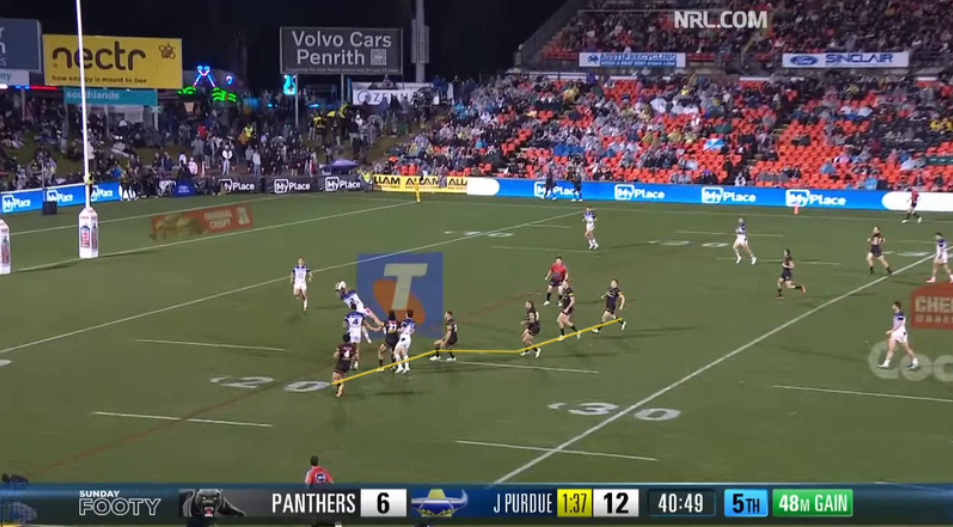I always have a particular match, trend, team, or player in mind to focus on heading into each round of the NRL season. This week, I’m answering a common question that has popped up throughout the year.
These are meant to be short and sharp articles to introduce the weekend, but they can sometimes become full features. If you like what you see, pass it on or sign up for a Premium membership for only $5 a month to have The Short Dropout delivered straight to your inbox every week.
Recent:
- Another new Knights halves pairing
- 19 Things I like about Rugby League
- How one tackle can have a big impact
- Breaking down simple yardage sets
- Getting nerdy over scrums
A comment underneath a YouTube video is the inspiration behind this segment for Round 19, but it’s something that I’ve seen pop up all year:

It’s not the most exciting approach. It’s easy to forget those contests that don’t work out for the kicking team when the odd one results in a try or opposition error. However, there is good reason behind teams not contesting on every kick.
Rugby league is becoming more and more about possession and momentum. In contesting a bomb, a team risks an error themselves and set start for the opposition, a penalty, or a broken defensive line.
Take this example in Round 10 of when it goes wrong:

Both AJ Brimson and Jojo Fifita made an effort to be in position to contest the kick. While they disrupted the contest and forced a mistake, the Titans don’t present a line on the kick chase. Those close to the sideline have contested the kick while the kick chase through the middle didn’t close the gap. Scott Drinkwater is one of the most instinctive attacking fullbacks in the NRL and makes them pay.
But why do some NRL teams rarely contest, and what is the benefit?
They’re happy to back their defence and pin the opposition in their own end.
As you might expect, the Penrith Panthers are masters in this area. They get around the ball, but don’t commit themselves to the contest. Instead, they present a line and shut down the kick return before it has started.

By landing on the catcher and and not allowing a kick return, the defence is set for tackle two.
Just look at the line waiting for the Broncos outside backs on tackle two here:

Penrith’s outside backs do the heavy lifting in yardage, which allows the middle to front-load their energy to defence early in a set. Not contesting the kick ensures they get the most out of the defensive energy from the middle forwards.
The Newcastle Knights have become one of the best kick-contain teams in the NRL recently. They contested more earlier in the season but have changed their approach and the results have come with it.
Here, they hold on their kick chase and instead allow Xavier Savage to catch the ball. The defensive line has plenty of time to set and their line speed catches Jordan Rapana behind the Savage play-the-ball.

Albert Hopoate’s carry on the following tackle ends up just five metres past where Savage caught the ball. By not contesting the kick and instead containing, the Knights defended three tackles for a five-metre loss.
These actions won’t end up in highlight reels. You’ll see teams get bored of kicking to the corner and containing on the kick chase within a game it’s that unexciting. Not everybody will agree with the approach, but the defensive benefits are why teams don’t always contain a bomb.
